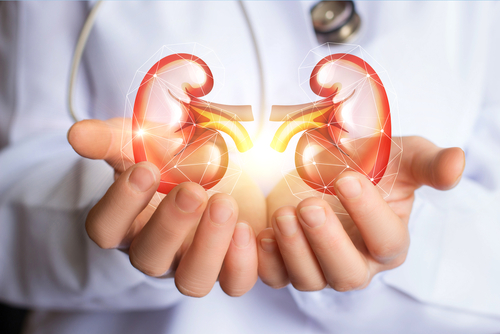
Chronic kidney disease, also known as chronic kidney failure, is a term used to describe a gradual loss of kidney functions. It indicates that your kidney is not working well. The main job of your kidney is to filter waste and produce urine. When they do not work well, a build-up of toxins occurs in your body. To get rid of them, your healthcare provider may ask to get dialysis done.
The common risk factors that can lead to chronic kidney disease are uncontrolled diabetes and high blood pressure. Therefore, if you have diabetes or hypertension, you must keep them under control. If both of your kidneys are not working, you can also get a kidney transplant to cope up. If your kidney function is declining, you must visit a nephrologist in Karachi.
What are the Signs and Symptoms of a Kidney Disease?
Generally, kidney disease does not show any symptoms until it has progressed much. They develop slowly if the damage occurs gradually. The signs and symptoms of kidney disease are;
- Nausea
- Vomiting
- Loss of appetite
- Fatigue
- Confusion
- Muscle twitches
- Muscle cramps
- Swelling of feet
- Swelling of ankles
- Persistent itching
- Chest pain occurs due to fluid builds up around the lining of the heart.
- Shortness of breath occurs due to fluid builds up in the lungs.
- Hypertension- High blood pressure that’s difficult to control
- Weakness
- Sleep problems
- Changes in urine volume
- Altered mental sharpness
Your kidneys are highly adaptable. Therefore the signs and symptoms do not appear until damage has progressed much.
What are the Causes of Kidney Disease?
Chronic kidney disease occurs due to various reasons. It can happen when any damage occurs to your kidneys. Diseases and conditions that can cause kidney damage are;
- Type 1 or type 2 diabetes
- Uncontrolled high blood pressure
- Glomerulonephritis- inflammation of glomeruli- tiny filtering units of kidneys
- Kidney stones, enlarged prostate, or some cancers that causes prolonged obstruction
- Vesicoureteral reflux- a condition in which your urine flows backward into your kidneys
- Recurrent pyelonephritis- a kidney infection
- Interstitial nephritis- a condition in which inflammation of surrounding structures of kidney occurs or kidney tubules
- Polycystic kidney disease- an inherited disorder in which clusters of cysts occur within your kidney.
What are the Risk Factors for a Kidney Disease?
Factors that can put you at risk of developing kidney disease are;
- Uncontrolled high blood sugar levels due to diabetes
- Uncontrolled high blood pressure or hypertension
- Cardiovascular diseases
- Being obese
- Smoking
- Having an abnormal kidney structure
- Older age
- Having a family history of kidney disease
What are the Complications of Kidney Disease?
Chronic kidney disease can affect almost every part of your body. It can lead to potential complications such as;
- Pulmonary edema- accumulation of fluid in your lungs because your kidneys are unable to excrete it out
- Swelling in arms and legs
- A rise in serum potassium levels
- Cardiovascular diseases
- Anemia because your kidneys stop producing erythropoietin- a hormone that plays a role in the production of red blood cells
- Reduced sex drive
- Erectile dysfunction in men
- Difficulty concentrating
- Seizures
- Reduced fertility
- Mood swings and personality changes
- Altered immune response, leaving you susceptible to infections
- Pericarditis- inflammation of the pericardium, a layer surrounding the heart.
Conclusion
Kidney disease is a gradual loss of kidney functioning. Often it occurs gradually, over some time, therefore does not show many symptoms because kidneys are quite adaptable. Your healthcare provider may ask you to get dialysis done or a kidney transplant when medications stop to help. If you have any signs of chronic kidney disease, you can visit a nephrologist in Islamabad.
